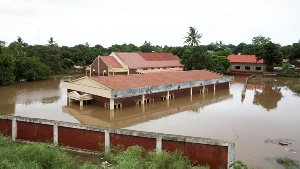A week ago, Public Agenda reported that the wife of a Doctor at the Ministry of Health had in cahoots with higher level connections at the Energy Commission flouted the ban on second-hand LPG bottles in Ghana.
The lady in question had with signatures from the Castle and Energy Commission, managed to clear and sell 17 containers of the banned cylinders while more containers were waiting at the ports to be cleared.
Public Agenda's investigations have revealed that although the Ghana Standards Board (GSB) is refusing to warrant the clearance of the rest of the banned second-hand LPG cylinders at the port, letters from the Energy Commission bearing fake (cc) to GSB and other agencies but without actual copies being delivered have been issued by a top official with support from the Castle as a reprieve on the ban for kickbacks.
Thankfully, four days later, the report sent shivers down the spine of the main character, pushing her to surrender a container-full of used 50kg cylinders to the Ghana Cylinder Manufacturing Company (GCMC) for testing and refurbishment.
There is uncertainty hanging around the whereabouts of the 16 remaining containers given that the there were as many as 450 cylinders in the one container she delivered to the GCMC last Thursday.
Second-hand LPG cylinders are classified as high risk goods and have on paper as per Legislative Instrument (L.I) 1693 (2001) been banned in Ghana, but in practice still find their way into the economy.
The testing and refurbishment process is a quality assurance procedure by which the GCMC subjects used cylinders to thorough testing. Cylinders which are faulty are taken out before the cylinders are handed over to the importer for onward sale.
Since the testing and refurbishment procedure is not free, several importers, especially the Doctor's wife, have outwitted the process, managing to divert containers to sell them to unsuspecting members of the public at cheaper prices.
It is the view of this paper that from hindsight, Ghanaians are used to sitting back until preventable catastrophes and deaths occur before engaging in the blame game. Otherwise, why look on when we all know that used LPG cylinders are the main cause of explosions and fires in homes.
It is justifiable, therefore, to call upon the Ghana Standard Board and the National Petroleum Authority to go beyond merely sponsoring advertisements in the media by identifying, arresting and prosecuting the culprits. After all, what is the essence of maintaining a law without enforcement?
On the other hand, the public must desist from patronizing used LPG cylinders which have not been tested and refurbished since they are the main cause of explosions and fires in homes.
Editorial News of Monday, 18 February 2008
Source: Public Agenda












